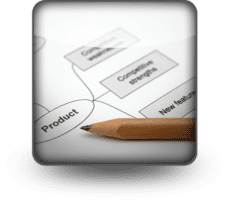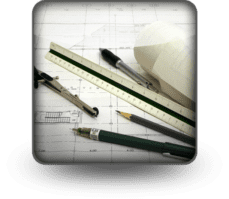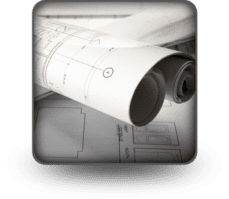[et_pb_section fb_built=”1″ fullwidth=”on” custom_padding_last_edited=”on|phone” admin_label=”Store Sunrise Slider” _builder_version=”4.4.1″ background_enable_color=”off” custom_padding_tablet=”0px|0|0px|0|false|false” custom_padding_phone=”” module_alignment_tablet=”” module_alignment_phone=”” module_alignment_last_edited=”on|tablet” transparent_background=”off” make_fullwidth=”off” use_custom_width=”off” width_unit=”on” global_colors_info=”{}”][et_pb_fullwidth_slider show_pagination=”off” arrows_custom_color=”#000000″ admin_label=”Fullwidth Slider” _builder_version=”4.9.7″ background_image=”https://fm-college.com/wp-content/uploads/2020/04/sunrise-jpeg-1600×373.jpg” custom_padding=”10px||10px||true|false” custom_padding_tablet=”|||” custom_padding_phone=”|||” box_shadow_style=”preset6″ box_shadow_blur=”10px” box_shadow_color=”rgba(0,0,0,0.1)” button_letter_spacing_hover=”0″ top_padding=”100px” bottom_padding=”100px” remove_inner_shadow=”off” hide_content_on_mobile=”off” hide_cta_on_mobile=”off” show_inner_shadow=”on” global_colors_info=”{}” button_text_size__hover_enabled=”off” button_one_text_size__hover_enabled=”off” button_two_text_size__hover_enabled=”off” button_text_color__hover_enabled=”off” button_one_text_color__hover_enabled=”off” button_two_text_color__hover_enabled=”off” button_border_width__hover_enabled=”off” button_one_border_width__hover_enabled=”off” button_two_border_width__hover_enabled=”off” button_border_color__hover_enabled=”off” button_one_border_color__hover_enabled=”off” button_two_border_color__hover_enabled=”off” button_border_radius__hover_enabled=”off” button_one_border_radius__hover_enabled=”off” button_two_border_radius__hover_enabled=”off” button_letter_spacing__hover_enabled=”on” button_letter_spacing__hover=”0″ button_one_letter_spacing__hover_enabled=”off” button_two_letter_spacing__hover_enabled=”off” button_bg_color__hover_enabled=”off” button_one_bg_color__hover_enabled=”off” button_two_bg_color__hover_enabled=”off”][et_pb_slide heading=”Facilities Strategic Leadership” button_text=”What About Certification?” button_link=”#Online-Final-Assessment” image=”https://fm-college.com/wp-content/uploads/2020/02/shutterstock_1119083438-crop.jpg” use_bg_overlay=”off” use_text_overlay=”on” _builder_version=”4.9.7″ header_font=”||||” header_font_size=”24px” body_font=”||||” background_enable_color=”off” button_icon_placement=”right” button_on_hover=”on” global_colors_info=”{}” button_text_size__hover_enabled=”off” button_one_text_size__hover_enabled=”off” button_two_text_size__hover_enabled=”off” button_text_color__hover_enabled=”off” button_one_text_color__hover_enabled=”off” button_two_text_color__hover_enabled=”off” button_border_width__hover_enabled=”off” button_one_border_width__hover_enabled=”off” button_two_border_width__hover_enabled=”off” button_border_color__hover_enabled=”off” button_one_border_color__hover_enabled=”off” button_two_border_color__hover_enabled=”off” button_border_radius__hover_enabled=”off” button_one_border_radius__hover_enabled=”off” button_two_border_radius__hover_enabled=”off” button_letter_spacing__hover_enabled=”off” button_one_letter_spacing__hover_enabled=”off” button_two_letter_spacing__hover_enabled=”off” button_bg_color__hover_enabled=”off” button_one_bg_color__hover_enabled=”off” button_two_bg_color__hover_enabled=”off” sticky_transition=”on”]
As the pace and demands for effective and strategic management of facilities portfolios accelerates in an ever more complex global environment, the need for key leaders to direct these challenges continues to increase.
In addition, the technological complexity of the built environment is increasing exponentially. Simple analysis and experience-based solutions are no longer enough for these challenges.
[/et_pb_slide][/et_pb_fullwidth_slider][/et_pb_section][et_pb_section fb_built=”1″ _builder_version=”4.4.1″ background_enable_color=”off” background_color_gradient_direction=”72deg” min_height_tablet=”” min_height_phone=”15px” min_height_last_edited=”on|phone” height_tablet=”” height_phone=”0px” height_last_edited=”on|phone” max_height_tablet=”” max_height_phone=”0px” max_height_last_edited=”on|phone” custom_margin=”||||false|false” custom_margin_tablet=”” custom_margin_phone=”0px||||false|false” custom_margin_last_edited=”on|desktop” custom_padding=”0px||9px||false|false” global_colors_info=”{}”][et_pb_row column_structure=”1_4,3_4″ _builder_version=”4.4.1″ background_enable_color=”off” width=”100%” custom_margin=”||||false|false” custom_padding=”||0px||false|false” border_color_right=”#ffffff” border_color_left=”#ffffff” global_colors_info=”{}”][et_pb_column type=”1_4″ _builder_version=”4.4.1″ custom_padding=”|0px|||false|false” global_colors_info=”{}”][et_pb_text _builder_version=”4.4.1″ background_enable_color=”off” z_index=”-10″ height=”0px” custom_margin=”||||false|false” custom_padding=”||0px|||” custom_padding_tablet=”” custom_padding_phone=”||||false|true” custom_padding_last_edited=”on|phone” global_colors_info=”{}”]
[/et_pb_text][et_pb_toggle title=”Covid-19 Considerations” open_toggle_text_color=”#000000″ icon_color=”#e06100″ use_icon_font_size=”on” icon_font_size=”24px” open_icon_color=”#e06100″ open_use_icon_font_size=”on” open_icon_font_size=”24px” admin_label=”Covid-19 Toggle” _builder_version=”4.13.0″ title_text_color=”#e06100″ closed_title_line_height=”1em” body_line_height=”1em” background_enable_color=”off” vertical_offset=”0px” z_index=”0″ min_height=”54px” custom_margin=”|||-20px|false|false” custom_margin_tablet=”|||0px|false|false” custom_margin_phone=”” custom_margin_last_edited=”on|phone” custom_padding=”20px||20px||true|false” border_radii=”off||10px|10px|” border_color_all=”#e09900″ global_colors_info=”{}”]
-
- Classroom areas arranged to provide 6 feet of space between all attendees
- Lunch and coffee breaks similarly arranged
- Transfer to 100% Online course at any time at no additional charge
- May reschedule to any course within 1 year of original course date at no additional charge
- 100% refund up to 14 days before class
Learn More
[/et_pb_toggle][et_pb_sidebar area=”et_pb_widget_area_16″ _builder_version=”4.4.1″ _dynamic_attributes=”link_option_url” header_font=”|600|||on||||” header_line_height=”0.8em” body_font=”|700|||||||” background_enable_color=”off” custom_margin=”|||10px|false|false” custom_margin_tablet=”0px|||10px|false|false” custom_margin_phone=”0px|||10px|false|false” custom_margin_last_edited=”off|phone” link_option_url=”@ET-DC@eyJkeW5hbWljIjp0cnVlLCJjb250ZW50IjoicG9zdF9saW5rX3VybF9wYWdlIiwic2V0dGluZ3MiOnsicG9zdF9pZCI6IjQyNzc3In19@” global_colors_info=”{}”][/et_pb_sidebar][et_pb_sidebar area=”et_pb_widget_area_17″ admin_label=”FM Advantage Sidebar” _builder_version=”4.4.1″ _dynamic_attributes=”link_option_url” header_text_color=”#0c71c3″ body_text_color=”#0c71c3″ body_font_size=”14px” background_enable_color=”off” positioning=”relative” vertical_offset=”-36px” height=”206px” custom_margin=”|20px|||false|false” custom_padding=”|10px|0px|10px|false|false” link_option_url=”@ET-DC@eyJkeW5hbWljIjp0cnVlLCJjb250ZW50IjoicG9zdF9saW5rX3VybF9wYWdlIiwic2V0dGluZ3MiOnsicG9zdF9pZCI6IjQyNzc3In19@” border_color_all=”rgba(0,0,0,0)” global_colors_info=”{}”][/et_pb_sidebar][/et_pb_column][et_pb_column type=”3_4″ _builder_version=”4.4.1″ background_color=”#ffffff” custom_padding=”||||false|false” border_color_all=”#239949″ global_colors_info=”{}”][et_pb_text disabled_on=”off|off|off” _builder_version=”4.9.7″ header_3_font=”Poppins|600|||||||” header_3_text_color=”#44d89e” header_3_font_size=”36px” header_3_line_height=”1.4em” width=”100%” max_width=”100%” custom_margin=”||||false|false” custom_margin_tablet=”||||false|false” custom_margin_phone=”-60px||30px|0px|false|false” custom_margin_last_edited=”on|desktop” custom_padding=”||||false|false” global_colors_info=”{}”]
Our Upcoming Classes
[/et_pb_text][et_pb_shop type=”product_category” posts_number=”6″ include_categories=”1017″ orderby=”menu_order” admin_label=”Shop ProFM” _builder_version=”4.14.8″ custom_margin_tablet=”” custom_margin_phone=”|||0px|false|false” custom_margin_last_edited=”on|tablet” custom_padding=”||||false|true” hover_enabled=”0″ global_colors_info=”{}” sticky_enabled=”0″][/et_pb_shop][/et_pb_column][/et_pb_row][/et_pb_section][et_pb_section fb_built=”1″ admin_label=”Course-Overview” _builder_version=”4.4.1″ background_color=”#fafbfc” custom_padding=”||||false|false” global_colors_info=”{}”][et_pb_row column_structure=”1_4,1_4,1_4,1_4″ custom_padding_last_edited=”on|desktop” _builder_version=”4.4.1″ width=”100%” min_height=”592px” custom_margin=”||||false|true” custom_margin_tablet=”” custom_margin_phone=”|||0px|false|false” custom_margin_last_edited=”on|desktop” custom_padding=”||||false|false” custom_padding_tablet=”” custom_padding_phone=”” global_colors_info=”{}”][et_pb_column type=”1_4″ _builder_version=”3.27.3″ background_enable_color=”off” global_colors_info=”{}”][et_pb_text _builder_version=”3.27.4″ text_text_color=”#44d89e” header_text_color=”#44d89e” header_3_font=”|600|||||||” header_3_text_color=”#44d89e” background_color=”#f4f4f4″ min_height=”36px” custom_margin=”0px|-20px|5px|-20px|false|false” custom_margin_tablet=”|0px||10px|false|false” custom_margin_phone=”|10px||10px|false|true” custom_margin_last_edited=”on|phone” custom_padding=”10px||0px||false|false” global_colors_info=”{}”]
Course Overview
[/et_pb_text][et_pb_toggle title=”Choose Expert Leadership & Guidance” icon_color=”#44d89e” use_icon_font_size=”on” icon_font_size=”24px” open_icon_color=”#44d89e” open_use_icon_font_size=”on” open_icon_font_size=”24px” _builder_version=”4.13.0″ custom_margin=”|-20px|5px|-20px|false|false” custom_margin_tablet=”|0px||10px|false|false” custom_margin_phone=”|10px||10px|false|true” custom_margin_last_edited=”on|phone” border_radii=”on|10px|10px|10px|10px” global_colors_info=”{}”]
- Learn from a credentialed instructor who provides expertise, insights and one-on-one guidance.
- Network, share experiences, and discuss topics with other FM professionals.
- Stay on track to earn your credential with a structured learning experience and support.
- Take advantage of your organization’s funding options, such as corporate tuition reimbursement.
[/et_pb_toggle][et_pb_toggle title=”FSL Adds Value for You” icon_color=”#44d89e” use_icon_font_size=”on” icon_font_size=”24px” open_icon_color=”#44d89e” open_use_icon_font_size=”on” open_icon_font_size=”24px” _builder_version=”4.13.0″ custom_margin=”|-20px|5px|-20px|false|false” custom_margin_tablet=”|0px||10px|false|false” custom_margin_phone=”|10px||10px|false|true” custom_margin_last_edited=”on|desktop” border_radii=”on|10px|10px|10px|10px” global_colors_info=”{}”]
This course is designed to prepare individuals for an advanced or senior role in Facilities Management. It will address the knowledge, skills and abilities needed to manage and lead high performance facilities in today’s complex environments.
- Increased problem solving
- Better decision making
- Better strategic alignment
- Improved stakeholder awareness
[/et_pb_toggle][et_pb_toggle title=”FSL Benefits Your Entire Organization” icon_color=”#44d89e” use_icon_font_size=”on” icon_font_size=”24px” open_icon_color=”#44d89e” open_use_icon_font_size=”on” open_icon_font_size=”24px” _builder_version=”4.13.0″ custom_margin=”|-20px|5px|-20px|false|true” custom_margin_tablet=”|0px||10px|false|false” custom_margin_phone=”|10px|5px|10px|false|true” custom_margin_last_edited=”on|phone” border_radii=”on|10px|10px|10px|10px” global_colors_info=”{}”]
- Improved future-readiness
- Enhanced strategic insights from leaders
- More sustainable business solutions
- Teaching you best practices to apply to your organization’s processes immediately
- Helping you develop strategic business skills to benefit your organization’s bottom line
- Demonstrating your department’s value to C-Suite and leadership roles
[/et_pb_toggle][et_pb_toggle title=”Tools to Help Transform FM” icon_color=”#44d89e” use_icon_font_size=”on” icon_font_size=”24px” open_icon_color=”#44d89e” open_use_icon_font_size=”on” open_icon_font_size=”24px” _builder_version=”4.13.0″ custom_margin=”|-20px|5px|-20px|false|true” custom_margin_tablet=”|0px||10px|false|false” custom_margin_phone=”|10px||10px|false|true” custom_margin_last_edited=”on|phone” border_radii=”on|10px|10px|10px|10px” global_colors_info=”{}”]
The knowledge and expertise needed is skill based, not simply knowledge based. The successful facilities leader must be able to apply expertise to complex real-world situations.
[/et_pb_toggle][/et_pb_column][et_pb_column type=”1_4″ _builder_version=”3.27.3″ global_colors_info=”{}”][et_pb_text _builder_version=”3.27.4″ text_text_color=”#44d89e” header_text_color=”#44d89e” header_3_font=”|600|||||||” header_3_text_color=”#44d89e” background_color=”#f4f4f4″ min_height=”36px” custom_margin=”0px|-20px|5px|-20px|false|true” custom_margin_tablet=”|10px||0px|false|false” custom_margin_phone=”|10px||10px|false|true” custom_margin_last_edited=”on|phone” custom_padding=”10px||0px||false|false” global_colors_info=”{}”]
Course Outline
[/et_pb_text][et_pb_toggle title=”Facilities Leadership” icon_color=”#44d89e” use_icon_font_size=”on” icon_font_size=”24px” open_icon_color=”#44d89e” open_use_icon_font_size=”on” open_icon_font_size=”24px” _builder_version=”4.13.0″ custom_margin=”|-20px|5px|-20px|false|true” custom_margin_tablet=”|10px||0px|false|false” custom_margin_phone=”|10px||10px|false|true” custom_margin_last_edited=”on|phone” border_radii=”on|10px|10px|10px|10px” global_colors_info=”{}”]
- Course introduction
- Global viewpoint
- Organizational strategy
- Quality and ISO-41001
[/et_pb_toggle][et_pb_toggle title=”Facilities Finance” icon_color=”#44d89e” use_icon_font_size=”on” icon_font_size=”24px” open_icon_color=”#44d89e” open_use_icon_font_size=”on” open_icon_font_size=”24px” _builder_version=”4.13.0″ custom_margin=”|-20px|5px|-20px|false|true” custom_margin_tablet=”|10px||0px|false|false” custom_margin_phone=”|10px||10px|false|true” custom_margin_last_edited=”on|phone” border_radii=”on|10px|10px|10px|10px” global_colors_info=”{}”]
- Gain knowledge of resources and cost
- Types of resources required
- How to manage financial resources
- Accounting techniques
- Budgeting techniques
- Methods of obtaining resources and monitoring their use
- Personnel resource management
- Costing of resources
- Relationship between cost and value of resources
- Capital planning of assets
- Long-term capital plan
- Financial management and analysis
- Setting financial objectives
- Constructing a budget
- Monitoring and managing financial resources
[/et_pb_toggle][et_pb_toggle title=”Advanced Financial Management” icon_color=”#44d89e” use_icon_font_size=”on” icon_font_size=”24px” open_icon_color=”#44d89e” open_use_icon_font_size=”on” open_icon_font_size=”24px” _builder_version=”4.13.0″ custom_margin=”|-20px|5px|-20px|false|false” custom_margin_tablet=”|10px||0px|false|false” custom_margin_phone=”|10px||10px|false|true” custom_margin_last_edited=”on|phone” border_radii=”on|10px|10px|10px|10px” global_colors_info=”{}”]
- Lifecycle
- Lifecycle costing
- Lifecycle exercises (simple)
- Lifecycle exercises (complex)
- Risk and uncertainty
- Understanding risk and uncertainty
- Risk analysis exercise
- Monte Carlo exercise
- Sensitivity exercise
- Forecasting
- Regression analysis exercise
[/et_pb_toggle][et_pb_toggle title=”Stakeholders and Operations” icon_color=”#44d89e” use_icon_font_size=”on” icon_font_size=”24px” open_icon_color=”#44d89e” open_use_icon_font_size=”on” open_icon_font_size=”24px” _builder_version=”4.13.0″ custom_margin=”|-20px|5px|-20px|false|false” custom_margin_tablet=”|10px||0px|false|false” custom_margin_phone=”|10px||10px|false|true” custom_margin_last_edited=”on|phone” border_radii=”on|10px|10px|10px|10px” global_colors_info=”{}”]
- Business cases, buyer influences, and stakeholder management
- Business case – short form
- Business case – long form
- Presentation & approval
- Stakeholder management
- Workshop: develop a business case and present to the group
- Operations and Maintenance strategies
- Summary of main methods
- Time based
- Condition based
- Predictive
- Run to failure
- Strategy
- Reliability Centered Maintenance
- Reliability Tools
- Root cause analysis
- Failure mode analysis
- Predictive tools
- Risk analysis
- Summary of main methods
- Energy and carbon
[/et_pb_toggle][et_pb_toggle title=”Contracting, Quality and Performance ” icon_color=”#44d89e” use_icon_font_size=”on” icon_font_size=”24px” open_icon_color=”#44d89e” open_use_icon_font_size=”on” open_icon_font_size=”24px” _builder_version=”4.13.0″ custom_margin=”|-20px|5px|-20px|false|true” custom_margin_tablet=”|10px||0px|false|false” custom_margin_phone=”|10px||10px|false|true” custom_margin_last_edited=”on|phone” border_radii=”on|10px|10px|10px|10px” global_colors_info=”{}”]
- Contracting
- Bidding
- Awarding
- Management of services or product delivery
- Closeout
- Managing performance and delivery of services
- Writing performance clauses
- Performance inspection
- Encouraging/improving performance
- Rewarding performance
- Dispute Resolution
- Quality management
- Project coordination
- Approval processes
- Performance management
- Communication
- Training development
- Operations
- Safety
[/et_pb_toggle][et_pb_toggle title=”Technology” icon_color=”#44d89e” use_icon_font_size=”on” icon_font_size=”24px” open_icon_color=”#44d89e” open_use_icon_font_size=”on” open_icon_font_size=”24px” _builder_version=”4.13.0″ custom_margin=”|-20px|5px|-20px|false|false” custom_margin_tablet=”|10px||0px|false|false” custom_margin_phone=”|10px||10px|false|true” custom_margin_last_edited=”on|phone” border_radii=”on|10px|10px|10px|10px” global_colors_info=”{}”]
- Computerized maintenance management systems
- Integrated work management systems
- Building information modeling, etc.
- Monitoring based commissioning
- Big data – Tableau, FCI systems, Asset Management, etc.
- IoT – Internet of Things
- Future shock
[/et_pb_toggle][/et_pb_column][et_pb_column type=”1_4″ _builder_version=”3.27.3″ global_colors_info=”{}”][et_pb_text _builder_version=”3.27.4″ text_text_color=”#44d89e” header_text_color=”#44d89e” header_3_font=”|600|||||||” header_3_text_color=”#44d89e” background_color=”#f4f4f4″ min_height=”36px” custom_margin=”0px|-20px|5px|-20px|false|true” custom_margin_tablet=”|0px||10px|false|false” custom_margin_phone=”|10px||10px|false|true” custom_margin_last_edited=”on|phone” custom_padding=”10px||0px||false|false” global_colors_info=”{}”]
Who Should Attend
[/et_pb_text][et_pb_text _builder_version=”3.27.4″ header_text_color=”#44d89e” header_3_font=”|600|||||||” header_3_text_color=”#44d89e” background_color=”#f4f4f4″ min_height=”36px” custom_margin=”0px|-20px|5px|-20px|false|true” custom_margin_tablet=”|0px||10px|false|false” custom_margin_phone=”|10px||10px|false|true” custom_margin_last_edited=”on|phone” custom_padding=”18px||0px|20px|false|false” border_radii=”on|10px|10px|10px|10px” border_width_all=”1px” border_color_all=”#d9d9d9″ global_colors_info=”{}”]
- Directors of Facilities
- Senior Managers of Facilities
- Engineering Directors
- Facilities leaders
- Sustainability & Energy Management leaders
- Members of strategy teams
- Emerging leaders
[/et_pb_text][et_pb_toggle title=”Prerequisites” icon_color=”#44d89e” use_icon_font_size=”on” icon_font_size=”24px” open_icon_color=”#44d89e” open_use_icon_font_size=”on” open_icon_font_size=”24px” _builder_version=”4.13.0″ custom_margin=”|-20px|5px|-20px|false|true” custom_margin_tablet=”|0px||10px|false|false” custom_margin_phone=”|10px||10px|false|true” custom_margin_last_edited=”on|phone” border_radii=”on|10px|10px|10px|10px” global_colors_info=”{}”]
- This is an advanced course, not a general knowledge course
- Specific topics are taught in depth
- Prior training and experience in general facilities management will be essential for success
- IFMA Certified Facility Manager (CFM) or equivalent
- ProFMI Credential (ProFM) or equivalent
- AHA Certified Healthcare Facility Manager (CHFM) or equivalent
[/et_pb_toggle][/et_pb_column][et_pb_column type=”1_4″ _builder_version=”3.27.3″ global_colors_info=”{}”][et_pb_text _builder_version=”3.27.4″ text_text_color=”#44d89e” header_text_color=”#44d89e” header_3_font=”|600|||||||” header_3_text_color=”#44d89e” background_color=”#f4f4f4″ min_height=”36px” custom_margin=”0px|-20px|5px|-20px|false|true” custom_margin_tablet=”|10px||0px|false|false” custom_margin_phone=”|10px||10px|false|true” custom_margin_last_edited=”on|phone” custom_padding=”10px||0px||false|false” global_colors_info=”{}”]
5 Key Take-aways
[/et_pb_text][et_pb_text _builder_version=”3.27.4″ text_line_height=”1.5em” header_text_color=”#44d89e” header_3_font=”|600|||||||” header_3_text_color=”#44d89e” background_color=”#f4f4f4″ min_height=”36px” custom_margin=”0px|-20px|5px|-20px|false|true” custom_margin_tablet=”|0px||10px|false|false” custom_margin_phone=”|10px||10px|false|true” custom_margin_last_edited=”on|phone” custom_padding=”9px|||20px|false|false” border_radii=”on|10px|10px|10px|10px” border_width_all=”1px” border_color_all=”#d9d9d9″ global_colors_info=”{}”]
Understanding your role as a strategic leader in the organization
[/et_pb_text][et_pb_text _builder_version=”3.27.4″ text_line_height=”1.5em” header_text_color=”#44d89e” header_3_font=”|600|||||||” header_3_text_color=”#44d89e” background_color=”#f4f4f4″ min_height=”36px” custom_margin=”0px|-20px|5px|-20px|false|true” custom_margin_tablet=”|0px||10px|false|false” custom_margin_phone=”|10px||10px|false|true” custom_margin_last_edited=”on|phone” custom_padding=”9px|||20px|false|false” border_radii=”on|10px|10px|10px|10px” border_width_all=”1px” border_color_all=”#d9d9d9″ global_colors_info=”{}”]
Organizational design and communication strategies for excellence
[/et_pb_text][et_pb_text _builder_version=”3.27.4″ text_line_height=”1.5em” header_text_color=”#44d89e” header_3_font=”|600|||||||” header_3_text_color=”#44d89e” background_color=”#f4f4f4″ min_height=”36px” custom_margin=”0px|-20px|5px|-20px|false|true” custom_margin_tablet=”|0px||10px|false|false” custom_margin_phone=”|10px||10px|false|true” custom_margin_last_edited=”on|phone” custom_padding=”9px|||20px|false|false” border_radii=”on|10px|10px|10px|10px” border_width_all=”1px” border_color_all=”#d9d9d9″ global_colors_info=”{}”]
Stakeholder management
[/et_pb_text][et_pb_text _builder_version=”3.27.4″ text_line_height=”1.5em” header_text_color=”#44d89e” header_3_font=”|600|||||||” header_3_text_color=”#44d89e” background_color=”#f4f4f4″ min_height=”36px” custom_margin=”0px|-20px|5px|-20px|false|true” custom_margin_tablet=”|0px||10px|false|false” custom_margin_phone=”|10px||10px|false|true” custom_margin_last_edited=”on|phone” custom_padding=”9px|||20px|false|false” border_radii=”on|10px|10px|10px|10px” border_width_all=”1px” border_color_all=”#d9d9d9″ global_colors_info=”{}”]
Creating successful projects & programs
[/et_pb_text][et_pb_text _builder_version=”3.27.4″ text_line_height=”1.5em” header_text_color=”#44d89e” header_3_font=”|600|||||||” header_3_text_color=”#44d89e” background_color=”#f4f4f4″ min_height=”36px” custom_margin=”0px|-20px|5px|-20px|false|true” custom_margin_tablet=”|0px||10px|false|false” custom_margin_phone=”|10px||10px|false|true” custom_margin_last_edited=”on|phone” custom_padding=”9px|||20px|false|false” border_radii=”on|10px|10px|10px|10px” border_width_all=”1px” border_color_all=”#d9d9d9″ global_colors_info=”{}”]
Monitoring & managing financial resources
[/et_pb_text][/et_pb_column][/et_pb_row][et_pb_row _builder_version=”3.25″ global_colors_info=”{}”][et_pb_column type=”4_4″ _builder_version=”3.25″ custom_padding=”|||” global_colors_info=”{}” custom_padding__hover=”|||”][et_pb_button button_url=”#Top” button_text=”Back to Menu” button_alignment=”center” admin_label=”Button” _builder_version=”3.27.3″ custom_button=”on” button_text_size=”14px” button_text_color=”#44d89e” button_border_width=”2px” button_border_color=”#44d89e” button_border_radius=”100px” button_font=”Poppins|600||on|||||” button_use_icon=”off” background_layout=”dark” custom_margin=”|||” custom_padding=”12px|36px|12px|36px” button_letter_spacing_hover=”0″ global_colors_info=”{}” button_text_size__hover_enabled=”off” button_one_text_size__hover_enabled=”off” button_two_text_size__hover_enabled=”off” button_text_color__hover_enabled=”off” button_one_text_color__hover_enabled=”off” button_two_text_color__hover_enabled=”off” button_border_width__hover_enabled=”off” button_one_border_width__hover_enabled=”off” button_two_border_width__hover_enabled=”off” button_border_color__hover_enabled=”off” button_one_border_color__hover_enabled=”off” button_two_border_color__hover_enabled=”off” button_border_radius__hover_enabled=”off” button_one_border_radius__hover_enabled=”off” button_two_border_radius__hover_enabled=”off” button_letter_spacing__hover_enabled=”on” button_letter_spacing__hover=”0″ button_one_letter_spacing__hover_enabled=”off” button_two_letter_spacing__hover_enabled=”off” button_bg_color__hover_enabled=”off” button_one_bg_color__hover_enabled=”off” button_two_bg_color__hover_enabled=”off”][/et_pb_button][/et_pb_column][/et_pb_row][/et_pb_section][et_pb_section fb_built=”1″ custom_padding_last_edited=”on|desktop” admin_label=”Reading Materials” _builder_version=”4.4.1″ background_enable_color=”off” custom_padding_tablet=”” custom_padding_phone=”” global_colors_info=”{}”][et_pb_row _builder_version=”4.4.1″ min_height=”77px” global_colors_info=”{}”][et_pb_column type=”4_4″ _builder_version=”3.25″ custom_padding=”|||” global_colors_info=”{}” custom_padding__hover=”|||”][et_pb_text _builder_version=”4.4.1″ text_font=”||||||||” text_text_color=”#114694″ header_font=”||||||||” header_text_align=”center” header_text_color=”#114694″ header_3_font=”Poppins|600|||||||” header_3_text_color=”#44d89e” header_3_font_size=”36px” header_3_line_height=”1.4em” text_orientation=”center” background_layout=”dark” min_height=”31px” global_colors_info=”{}”]
Program Description & Objectives
[/et_pb_text][/et_pb_column][/et_pb_row][et_pb_row column_structure=”3_5,2_5″ _builder_version=”4.4.1″ width=”100%” min_height=”344px” global_colors_info=”{}”][et_pb_column type=”3_5″ _builder_version=”3.27.3″ global_colors_info=”{}”][et_pb_text _builder_version=”4.4.1″ custom_padding_tablet=”|20px||20px|false|false” custom_padding_phone=”|10px||20px|false|false” custom_padding_last_edited=”on|phone” global_colors_info=”{}”]
This course is designed to prepare individuals for an advanced or senior role in Facilities leadership. It will address the knowledge, skills and abilities needed to operate high performance facilities organizations in today’s complex environments.
Strategic alignment between the goals of the “demand organization” utilizing the facilities, and the actions of the facilities organization supporting their operation is critical to success. The expertise for the development and operation of these facilities is the responsibility of the Facilities Leader. Without the right knowledge, skills and abilities this key leader cannot succeed. Yet succeed he or she must, if the larger “demand organization” is to succeed in its mission.
The knowledge and expertise needed is skill based, not simply knowledge based. The successful Facilities Leader must be able to apply expertise to complex real-world situations.
This exciting program combines text-based knowledge, with real-world situations to develop a blended learning workshop that accelerates the Facilities Leader’s development as a strategic partner to the leaders of the “demand organization”
[/et_pb_text][/et_pb_column][et_pb_column type=”2_5″ _builder_version=”3.27.3″ global_colors_info=”{}”][et_pb_toggle title=”Training Program Detailed Objectives” icon_color=”#44d89e” use_icon_font_size=”on” icon_font_size=”24px” open_icon_color=”#44d89e” open_use_icon_font_size=”on” open_icon_font_size=”24px” _builder_version=”4.13.0″ custom_margin_tablet=”|10px||10px|false|true” custom_margin_phone=”” custom_margin_last_edited=”on|desktop” border_radii=”on|6px|6px|6px|6px” global_colors_info=”{}”]
- How leadership and motivation theories can be applied in practice
- How organizational design and communication strategies can affect leadership
- How climate and culture affect human resource performance
- Setting financial objectives
- Constructing a budget
- Monitoring and managing financial resources
- Preparing reports and recommendations for the use and allocation of resources
- Types of resources required
- Accounting & budgeting techniques
- Forecasting techniques
- Costing of resources
- Life cycle costing
- Risk, probability & sensitivity analysis
- Relationship between cost & value
[/et_pb_toggle][et_pb_image src=”https://fm-college.com/wp-content/uploads/2020/02/FM_Group.jpg” _builder_version=”3.27.3″ global_colors_info=”{}”][/et_pb_image][/et_pb_column][/et_pb_row][et_pb_row _builder_version=”3.25″ global_colors_info=”{}”][et_pb_column type=”4_4″ _builder_version=”3.25″ custom_padding=”|||” global_colors_info=”{}” custom_padding__hover=”|||”][et_pb_button button_url=”#Top” button_text=”Back to Menu” button_alignment=”center” admin_label=”Button” _builder_version=”3.27.3″ custom_button=”on” button_text_size=”14px” button_text_color=”#44d89e” button_border_width=”2px” button_border_color=”#44d89e” button_border_radius=”100px” button_font=”Poppins|600||on|||||” button_use_icon=”off” background_layout=”dark” custom_margin=”-25px|||||” custom_padding=”13px|36px|12px|36px||” button_letter_spacing_hover=”0″ global_colors_info=”{}” button_text_size__hover_enabled=”off” button_one_text_size__hover_enabled=”off” button_two_text_size__hover_enabled=”off” button_text_color__hover_enabled=”off” button_one_text_color__hover_enabled=”off” button_two_text_color__hover_enabled=”off” button_border_width__hover_enabled=”off” button_one_border_width__hover_enabled=”off” button_two_border_width__hover_enabled=”off” button_border_color__hover_enabled=”off” button_one_border_color__hover_enabled=”off” button_two_border_color__hover_enabled=”off” button_border_radius__hover_enabled=”off” button_one_border_radius__hover_enabled=”off” button_two_border_radius__hover_enabled=”off” button_letter_spacing__hover_enabled=”on” button_letter_spacing__hover=”0″ button_one_letter_spacing__hover_enabled=”off” button_two_letter_spacing__hover_enabled=”off” button_bg_color__hover_enabled=”off” button_one_bg_color__hover_enabled=”off” button_two_bg_color__hover_enabled=”off”][/et_pb_button][/et_pb_column][/et_pb_row][/et_pb_section][et_pb_section fb_built=”1″ admin_label=”5-Key-Take-aways” _builder_version=”4.4.1″ background_color=”#fafbfc” min_height=”699px” global_colors_info=”{}”][et_pb_row _builder_version=”4.4.1″ global_colors_info=”{}”][et_pb_column type=”4_4″ _builder_version=”3.25″ custom_padding=”|||” global_colors_info=”{}” custom_padding__hover=”|||”][et_pb_text _builder_version=”4.4.1″ text_font=”||||||||” text_text_color=”#114694″ header_font=”||||||||” header_text_align=”center” header_text_color=”#114694″ header_3_font=”Poppins|600|||||||” header_3_text_color=”#44d89e” header_3_font_size=”36px” header_3_line_height=”1.4em” text_orientation=”center” background_layout=”dark” min_height=”48px” custom_margin=”||||false|false” global_colors_info=”{}”]
FSL Course Material References
[/et_pb_text][/et_pb_column][/et_pb_row][et_pb_row column_structure=”1_2,1_2″ use_custom_gutter=”on” gutter_width=”2″ make_equal=”on” column_padding_mobile=”on” custom_padding_last_edited=”on|tablet” admin_label=”Row – Online Study tools” _builder_version=”4.4.1″ background_enable_color=”off” background_size=”initial” background_position=”top_left” background_repeat=”repeat” width=”100%” min_height=”949px” height_tablet=”” height_phone=”1142px” height_last_edited=”on|phone” custom_margin_last_edited=”off|phone” custom_padding_tablet=”” custom_padding_phone=”||||false|false” global_colors_info=”{}”][et_pb_column type=”1_2″ _builder_version=”3.25″ custom_padding=”|||” global_colors_info=”{}” custom_padding__hover=”|||”][et_pb_blurb url=”https://fm-college.com/?post_type=tribe_events&p=40106&preview=true” content_max_width=”800px” admin_label=”Take-away 1″ _builder_version=”4.13.0″ header_font=”Poppins|600|||||||” header_text_align=”left” header_text_color=”#486066″ header_font_size=”18px” header_line_height=”1.3em” body_font=”Open Sans||||||||” body_text_align=”center” body_text_color=”#486066″ body_line_height=”1.8em” background_color=”#ffffff” width_tablet=”” width_phone=”” width_last_edited=”on|desktop” min_height=”55px” min_height_tablet=”55px” min_height_phone=”110px” min_height_last_edited=”on|phone” height_tablet=”” height_phone=”” height_last_edited=”on|desktop” custom_margin=”-5px|10px|15px|10px|false|false” custom_margin_tablet=”-47px|10px|15px|10px|false|false” custom_margin_phone=”15px|10px|15px|10px|false|false” custom_margin_last_edited=”on|desktop” custom_padding=”|10px||10px|false|false” animation_style=”fade” animation=”off” border_radii=”on|6px|6px|6px|6px” box_shadow_style=”preset1″ box_shadow_vertical=”10px” box_shadow_blur=”24px” box_shadow_spread=”6px” box_shadow_color=”rgba(0,0,0,0.06)” global_colors_info=”{}”]
 ANSI/ASHRAE Standard 62.1-2019: Ventilation for Acceptable Indoor Air Quality
ANSI/ASHRAE Standard 62.1-2019: Ventilation for Acceptable Indoor Air Quality
American Society of Heating, Refrigerating and Air-Conditioning Engineers (ASHRAE), Inc. 2019
[/et_pb_blurb][et_pb_blurb url=”https://fm-college.com/?post_type=tribe_events&p=40106&preview=true” content_max_width=”800px” admin_label=”Take-away 1″ _builder_version=”4.13.0″ header_font=”Poppins|600|||||||” header_text_align=”left” header_text_color=”#486066″ header_font_size=”18px” header_line_height=”1.3em” body_font=”Open Sans||||||||” body_text_align=”center” body_text_color=”#486066″ body_line_height=”1.8em” background_color=”#ffffff” min_height=”122px” min_height_tablet=”122px” min_height_phone=”57px” min_height_last_edited=”on|tablet” height_tablet=”” height_phone=”” height_last_edited=”on|phone” custom_margin=”|10px|15px|10px|false|false” custom_margin_tablet=”15px|10px|15px|10px|false|false” custom_margin_phone=”0px|10px|15px|10px|false|false” custom_margin_last_edited=”on|tablet” custom_padding=”|10px||10px|false|false” animation_style=”fade” animation=”off” border_radii=”on|6px|6px|6px|6px” box_shadow_style=”preset1″ box_shadow_vertical=”10px” box_shadow_blur=”24px” box_shadow_spread=”6px” box_shadow_color=”rgba(0,0,0,0.06)” global_colors_info=”{}”]
 Facilities Management Handbook
Facilities Management Handbook
Booty, F. 4th edition, 2011
[/et_pb_blurb][et_pb_blurb url=”https://fm-college.com/?post_type=tribe_events&p=40106&preview=true” content_max_width=”800px” admin_label=”Take-away 1″ _builder_version=”4.13.0″ header_font=”Poppins|600|||||||” header_text_align=”left” header_text_color=”#486066″ header_font_size=”18px” header_line_height=”1.3em” body_font=”Open Sans||||||||” body_text_align=”center” body_text_color=”#486066″ body_line_height=”1.8em” background_color=”#ffffff” custom_margin=”|10px|15px|10px|false|false” custom_margin_tablet=”15px|10px|15px|10px|false|false” custom_margin_phone=”0px|10px|15px|10px|false|false” custom_margin_last_edited=”on|phone” custom_padding=”0px|10px|0px|10px|false|false” animation_style=”fade” animation=”off” border_radii=”on|6px|6px|6px|6px” box_shadow_style=”preset1″ box_shadow_vertical=”10px” box_shadow_blur=”24px” box_shadow_spread=”6px” box_shadow_color=”rgba(0,0,0,0.06)” global_colors_info=”{}”]
 Financial Management: Theory and Practice
Financial Management: Theory and Practice
Brigham, E. F and Ehrhardt, M. C. 13th Edition, 2011
[/et_pb_blurb][et_pb_blurb url=”https://fm-college.com/?post_type=tribe_events&p=40106&preview=true” content_max_width=”800px” admin_label=”Take-away 1″ _builder_version=”4.13.0″ header_font=”Poppins|600|||||||” header_text_align=”left” header_text_color=”#486066″ header_font_size=”18px” header_line_height=”1.3em” body_font=”Open Sans||||||||” body_text_align=”center” body_text_color=”#486066″ body_line_height=”1.8em” background_color=”#ffffff” custom_margin=”|10px|15px|10px|false|false” custom_margin_tablet=”15px|10px|15px|10px|false|false” custom_margin_phone=”|10px|15px|10px|false|false” custom_margin_last_edited=”on|phone” custom_padding=”2px|10px|0px|10px|false|false” animation_style=”fade” animation=”off” border_radii=”on|6px|6px|6px|6px” box_shadow_style=”preset1″ box_shadow_vertical=”10px” box_shadow_blur=”24px” box_shadow_spread=”6px” box_shadow_color=”rgba(0,0,0,0.06)” global_colors_info=”{}”]
 Facility and Property Management Guidebook
Facility and Property Management Guidebook
Campbell, J. L., Second edition, 2011
[/et_pb_blurb][et_pb_blurb url=”https://fm-college.com/?post_type=tribe_events&p=40106&preview=true” content_max_width=”800px” admin_label=”Take-away 1″ _builder_version=”4.13.0″ header_font=”Poppins|600|||||||” header_text_align=”left” header_text_color=”#486066″ header_font_size=”18px” header_line_height=”1.3em” body_font=”Open Sans||||||||” body_text_align=”center” body_text_color=”#486066″ body_line_height=”1.8em” background_color=”#ffffff” custom_margin=”|10px|15px|10px|false|false” custom_margin_tablet=”15px|10px|15px|10px|false|false” custom_margin_phone=”|10px|15px|10px|false|false” custom_margin_last_edited=”on|phone” custom_padding=”|10px|0px|10px|false|false” animation_style=”fade” animation=”off” border_radii=”on|6px|6px|6px|6px” box_shadow_style=”preset1″ box_shadow_vertical=”10px” box_shadow_blur=”24px” box_shadow_spread=”6px” box_shadow_color=”rgba(0,0,0,0.06)” global_colors_info=”{}”]
 Principles and Practices Organizational Performance Excellence
Principles and Practices Organizational Performance Excellence
Cartin, T. J., 1999
[/et_pb_blurb][et_pb_blurb url=”https://fm-college.com/?post_type=tribe_events&p=40106&preview=true” content_max_width=”800px” admin_label=”Take-away 1″ _builder_version=”4.13.0″ header_font=”Poppins|600|||||||” header_text_align=”left” header_text_color=”#486066″ header_font_size=”18px” header_line_height=”1.3em” body_font=”Open Sans||||||||” body_text_align=”center” body_text_color=”#486066″ body_line_height=”1.8em” background_color=”#ffffff” custom_margin=”|10px|15px|10px|false|false” custom_margin_tablet=”15px|10px|15px|10px|false|false” custom_margin_phone=”|10px|15px|10px|false|false” custom_margin_last_edited=”on|phone” custom_padding=”|10px|0px|10px|false|false” animation_style=”fade” animation=”off” border_radii=”on|6px|6px|6px|6px” box_shadow_style=”preset1″ box_shadow_vertical=”10px” box_shadow_blur=”24px” box_shadow_spread=”6px” box_shadow_color=”rgba(0,0,0,0.06)” global_colors_info=”{}”]
 Mainstreaming Corporate Sustainability: Using Proven Tools to Promote Business Success
Mainstreaming Corporate Sustainability: Using Proven Tools to Promote Business Success
Farver, S., 2013
[/et_pb_blurb][et_pb_blurb url=”https://fm-college.com/?post_type=tribe_events&p=40106&preview=true” content_max_width=”800px” admin_label=”Take-away 1″ _builder_version=”4.13.0″ header_font=”Poppins|600|||||||” header_text_align=”left” header_text_color=”#486066″ header_font_size=”18px” header_line_height=”1.3em” body_font=”Open Sans||||||||” body_text_align=”center” body_text_color=”#486066″ body_line_height=”1.8em” background_color=”#ffffff” custom_margin=”|10px|15px|10px|false|false” custom_margin_tablet=”15px|10px|15px|10px|false|false” custom_margin_phone=”|10px|15px|10px|false|false” custom_margin_last_edited=”on|desktop” custom_padding=”|10px|5px|10px|false|false” animation_style=”fade” animation=”off” border_radii=”on|6px|6px|6px|6px” box_shadow_style=”preset1″ box_shadow_vertical=”10px” box_shadow_blur=”24px” box_shadow_spread=”6px” box_shadow_color=”rgba(0,0,0,0.06)” global_colors_info=”{}”]
 Organizational Development for Facility Managers: Tracing The DNA of FM Organizations
Organizational Development for Facility Managers: Tracing The DNA of FM Organizations
Friday, S., 2003
[/et_pb_blurb][et_pb_blurb url=”https://fm-college.com/?post_type=tribe_events&p=40106&preview=true” content_max_width=”800px” admin_label=”Take-away 1″ _builder_version=”4.13.0″ header_font=”Poppins|600|||||||” header_text_align=”left” header_text_color=”#486066″ header_font_size=”18px” header_line_height=”1.3em” body_font=”Open Sans||||||||” body_text_align=”center” body_text_color=”#486066″ body_line_height=”1.8em” background_color=”#ffffff” custom_margin=”|10px|15px|10px|false|false” custom_margin_tablet=”15px|10px|15px|10px|false|false” custom_margin_phone=”|10px|15px|10px|false|false” custom_margin_last_edited=”on|desktop” custom_padding=”|10px|5px|10px|false|false” animation_style=”fade” animation=”off” border_radii=”on|6px|6px|6px|6px” box_shadow_style=”preset1″ box_shadow_vertical=”10px” box_shadow_blur=”24px” box_shadow_spread=”6px” box_shadow_color=”rgba(0,0,0,0.06)” global_colors_info=”{}”]
 Quality Facility Management: A Marketing and Customer Services Approach
Quality Facility Management: A Marketing and Customer Services Approach
Friday, S. & Cotts, D. G., 1995
[/et_pb_blurb][et_pb_blurb url=”https://fm-college.com/?post_type=tribe_events&p=40106&preview=true” content_max_width=”800px” admin_label=”Take-away 1″ _builder_version=”4.13.0″ header_font=”Poppins|600|||||||” header_text_align=”left” header_text_color=”#486066″ header_font_size=”18px” header_line_height=”1.3em” body_font=”Open Sans||||||||” body_text_align=”center” body_text_color=”#486066″ body_line_height=”1.8em” background_color=”#ffffff” custom_margin=”|10px|15px|10px|false|false” custom_margin_tablet=”15px|10px|15px|10px|false|false” custom_margin_phone=”|10px|15px|10px|false|false” custom_margin_last_edited=”on|desktop” custom_padding=”|10px|5px|10px|false|false” animation_style=”fade” animation=”off” border_radii=”on|6px|6px|6px|6px” box_shadow_style=”preset1″ box_shadow_vertical=”10px” box_shadow_blur=”24px” box_shadow_spread=”6px” box_shadow_color=”rgba(0,0,0,0.06)” global_colors_info=”{}”]
 A Guide to the Project Management Body of Knowledge – PMBOK Guide
A Guide to the Project Management Body of Knowledge – PMBOK Guide
Project Management Institute (PMI), 6th Edition, 2017
[/et_pb_blurb][et_pb_blurb url=”https://fm-college.com/?post_type=tribe_events&p=40106&preview=true” content_max_width=”800px” admin_label=”Take-away 1″ _builder_version=”4.13.0″ header_font=”Poppins|600|||||||” header_text_align=”left” header_text_color=”#486066″ header_font_size=”18px” header_line_height=”1.3em” body_font=”Open Sans||||||||” body_text_align=”center” body_text_color=”#486066″ body_line_height=”1.8em” background_color=”#ffffff” custom_margin=”|10px|15px|10px|false|false” custom_margin_tablet=”15px|10px|15px|10px|false|false” custom_margin_phone=”|10px|15px|10px|false|false” custom_margin_last_edited=”on|desktop” custom_padding=”|10px|5px|10px|false|false” animation_style=”fade” animation=”off” border_radii=”on|6px|6px|6px|6px” box_shadow_style=”preset1″ box_shadow_vertical=”10px” box_shadow_blur=”24px” box_shadow_spread=”6px” box_shadow_color=”rgba(0,0,0,0.06)” global_colors_info=”{}”]
 Agile Practice Guide
Agile Practice Guide
Project Management Institute (PMI), 2017
[/et_pb_blurb][/et_pb_column][et_pb_column type=”1_2″ _builder_version=”3.27.3″ background_enable_color=”off” custom_padding=”|||” global_colors_info=”{}” custom_padding__hover=”|||”][et_pb_blurb url=”https://fm-college.com/?post_type=tribe_events&p=40106&preview=true” content_max_width=”800px” admin_label=”Take-away 1″ _builder_version=”4.13.0″ header_font=”Poppins|600|||||||” header_text_align=”left” header_text_color=”#486066″ header_font_size=”18px” header_line_height=”1.3em” body_font=”Open Sans||||||||” body_text_align=”center” body_text_color=”#486066″ body_line_height=”1.8em” background_color=”#ffffff” custom_margin=”|10px|15px|10px|false|false” custom_margin_tablet=”15px|10px|15px|10px|false|false” custom_margin_phone=”|10px|15px|10px|false|false” custom_margin_last_edited=”on|desktop” custom_padding=”|10px|5px|10px|false|false” animation_style=”fade” animation=”off” border_radii=”on|6px|6px|6px|6px” box_shadow_style=”preset1″ box_shadow_vertical=”10px” box_shadow_blur=”24px” box_shadow_spread=”6px” box_shadow_color=”rgba(0,0,0,0.06)” global_colors_info=”{}”]
 ISO 55000: Leveraging the ISO Standard To Manage Risk And Realize Value Of Your Organization’s Assets
ISO 55000: Leveraging the ISO Standard To Manage Risk And Realize Value Of Your Organization’s Assets
Heisler, R., 2013
[/et_pb_blurb][et_pb_blurb url=”https://fm-college.com/?post_type=tribe_events&p=40106&preview=true” content_max_width=”800px” admin_label=”Take-away 1″ _builder_version=”4.13.0″ header_font=”Poppins|600|||||||” header_text_align=”left” header_text_color=”#486066″ header_font_size=”18px” header_line_height=”1.3em” body_font=”Open Sans||||||||” body_text_align=”center” body_text_color=”#486066″ body_line_height=”1.8em” background_color=”#ffffff” custom_margin=”|10px|15px|10px|false|false” custom_margin_tablet=”15px|10px|15px|10px|false|false” custom_margin_phone=”|10px|15px|10px|false|false” custom_margin_last_edited=”on|desktop” custom_padding=”|10px|5px|10px|false|false” animation_style=”fade” animation=”off” border_radii=”on|6px|6px|6px|6px” box_shadow_style=”preset1″ box_shadow_vertical=”10px” box_shadow_blur=”24px” box_shadow_spread=”6px” box_shadow_color=”rgba(0,0,0,0.06)” global_colors_info=”{}”]
 ISO 31000:2018 “Risk Management – Principles & Guidelines”
ISO 31000:2018 “Risk Management – Principles & Guidelines”
ISO, 2018
[/et_pb_blurb][et_pb_blurb url=”https://fm-college.com/?post_type=tribe_events&p=40106&preview=true” content_max_width=”800px” admin_label=”Take-away 1″ _builder_version=”4.13.0″ header_font=”Poppins|600|||||||” header_text_align=”left” header_text_color=”#486066″ header_font_size=”18px” header_line_height=”1.3em” body_font=”Open Sans||||||||” body_text_align=”center” body_text_color=”#486066″ body_line_height=”1.8em” background_color=”#ffffff” custom_margin=”|10px|15px|10px|false|false” custom_margin_tablet=”15px|10px|15px|10px|false|false” custom_margin_phone=”|10px|15px|10px|false|false” custom_margin_last_edited=”on|desktop” custom_padding=”|10px|5px|10px|false|false” animation_style=”fade” animation=”off” border_radii=”on|6px|6px|6px|6px” box_shadow_style=”preset1″ box_shadow_vertical=”10px” box_shadow_blur=”24px” box_shadow_spread=”6px” box_shadow_color=”rgba(0,0,0,0.06)” global_colors_info=”{}”]
 ISO 41001:2018 “Facilities Management – Management systems”
ISO 41001:2018 “Facilities Management – Management systems”
ISO, 2018
[/et_pb_blurb][et_pb_blurb url=”https://fm-college.com/?post_type=tribe_events&p=40106&preview=true” content_max_width=”800px” admin_label=”Take-away 1″ _builder_version=”4.13.0″ header_font=”Poppins|600|||||||” header_text_align=”left” header_text_color=”#486066″ header_font_size=”18px” header_line_height=”1.3em” body_font=”Open Sans||||||||” body_text_align=”center” body_text_color=”#486066″ body_line_height=”1.8em” background_color=”#ffffff” custom_margin=”|10px|15px|10px|false|false” custom_margin_tablet=”15px|10px|15px|10px|false|false” custom_margin_phone=”|10px|15px|10px|false|false” custom_margin_last_edited=”on|desktop” custom_padding=”|10px|5px|10px|false|false” animation_style=”fade” animation=”off” border_radii=”on|6px|6px|6px|6px” box_shadow_style=”preset1″ box_shadow_vertical=”10px” box_shadow_blur=”24px” box_shadow_spread=”6px” box_shadow_color=”rgba(0,0,0,0.06)” global_colors_info=”{}”]
 Managing the Dynamics of Change
Managing the Dynamics of Change
Jellison, J., 2006
[/et_pb_blurb][et_pb_blurb url=”https://fm-college.com/?post_type=tribe_events&p=40106&preview=true” content_max_width=”800px” admin_label=”Take-away 1″ _builder_version=”4.13.0″ header_font=”Poppins|600|||||||” header_text_align=”left” header_text_color=”#486066″ header_font_size=”18px” header_line_height=”1.3em” body_font=”Open Sans||||||||” body_text_align=”center” body_text_color=”#486066″ body_line_height=”1.8em” background_color=”#ffffff” custom_margin=”|10px|15px|10px|false|false” custom_margin_tablet=”15px|10px|15px|10px|false|false” custom_margin_phone=”|10px|15px|10px|false|false” custom_margin_last_edited=”on|desktop” custom_padding=”|10px|5px|10px|false|false” animation_style=”fade” animation=”off” border_radii=”on|6px|6px|6px|6px” box_shadow_style=”preset1″ box_shadow_vertical=”10px” box_shadow_blur=”24px” box_shadow_spread=”6px” box_shadow_color=”rgba(0,0,0,0.06)” global_colors_info=”{}”]
 Facilities Management and Corporate Real Estate Management as Value Drivers: How to Manage and Measure Adding Value
Facilities Management and Corporate Real Estate Management as Value Drivers: How to Manage and Measure Adding Value
Jensen, P. A. & Voordt, T., 2017
[/et_pb_blurb][et_pb_blurb url=”https://fm-college.com/?post_type=tribe_events&p=40106&preview=true” content_max_width=”800px” admin_label=”Take-away 1″ _builder_version=”4.13.0″ header_font=”Poppins|600|||||||” header_text_align=”left” header_text_color=”#486066″ header_font_size=”18px” header_line_height=”1.3em” body_font=”Open Sans||||||||” body_text_align=”center” body_text_color=”#486066″ body_line_height=”1.8em” background_color=”#ffffff” custom_margin=”|10px|15px|10px|false|false” custom_margin_tablet=”15px|10px|15px|10px|false|false” custom_margin_phone=”|10px|15px|10px|false|false” custom_margin_last_edited=”on|desktop” custom_padding=”|10px|5px|10px|false|false” animation_style=”fade” animation=”off” border_radii=”on|6px|6px|6px|6px” box_shadow_style=”preset1″ box_shadow_vertical=”10px” box_shadow_blur=”24px” box_shadow_spread=”6px” box_shadow_color=”rgba(0,0,0,0.06)” global_colors_info=”{}”]
 The Facility Management Handbook
The Facility Management Handbook
Roper, K. O. & Payant, R. P., 2014
[/et_pb_blurb][et_pb_blurb url=”https://fm-college.com/?post_type=tribe_events&p=40106&preview=true” content_max_width=”800px” admin_label=”Take-away 1″ _builder_version=”4.13.0″ header_font=”Poppins|600|||||||” header_text_align=”left” header_text_color=”#486066″ header_font_size=”18px” header_line_height=”1.3em” body_font=”Open Sans||||||||” body_text_align=”center” body_text_color=”#486066″ body_line_height=”1.8em” background_color=”#ffffff” custom_margin=”|10px|15px|10px|false|false” custom_margin_tablet=”15px|10px|15px|10px|false|false” custom_margin_phone=”|10px|15px|10px|false|false” custom_margin_last_edited=”on|desktop” custom_padding=”|10px|5px|10px|false|false” animation_style=”fade” animation=”off” border_radii=”on|6px|6px|6px|6px” box_shadow_style=”preset1″ box_shadow_vertical=”10px” box_shadow_blur=”24px” box_shadow_spread=”6px” box_shadow_color=”rgba(0,0,0,0.06)” global_colors_info=”{}”]
 HBR Guide to Building a Business Case
HBR Guide to Building a Business Case
Sheen, R. & Gallo, A., 2015
[/et_pb_blurb][et_pb_image src=”https://fm-college.com/wp-content/uploads/2020/03/1033788051.jpg” admin_label=”Image” _builder_version=”3.27.3″ background_enable_color=”off” max_width=”100%” custom_margin=”1px|||||” custom_padding=”|||0px||” global_colors_info=”{}”][/et_pb_image][/et_pb_column][/et_pb_row][et_pb_row _builder_version=”4.4.1″ global_colors_info=”{}”][et_pb_column type=”4_4″ _builder_version=”3.25″ custom_padding=”|||” global_colors_info=”{}” custom_padding__hover=”|||”][et_pb_button button_url=”#Top” button_text=”Back to Menu” button_alignment=”center” _builder_version=”4.4.1″ custom_button=”on” button_text_size=”14px” button_text_color=”#44d89e” button_border_width=”2px” button_border_color=”#44d89e” button_border_radius=”100px” button_font=”Poppins|600||on|||||” button_use_icon=”off” background_layout=”dark” custom_margin=”18px||-5px||false|false” custom_margin_phone=”32px||-5px||false|false” custom_margin_last_edited=”off|tablet” custom_padding=”12px|36px|12px|36px|false|false” button_letter_spacing_hover=”0″ global_colors_info=”{}” button_text_size__hover_enabled=”off” button_one_text_size__hover_enabled=”off” button_two_text_size__hover_enabled=”off” button_text_color__hover_enabled=”off” button_one_text_color__hover_enabled=”off” button_two_text_color__hover_enabled=”off” button_border_width__hover_enabled=”off” button_one_border_width__hover_enabled=”off” button_two_border_width__hover_enabled=”off” button_border_color__hover_enabled=”off” button_one_border_color__hover_enabled=”off” button_two_border_color__hover_enabled=”off” button_border_radius__hover_enabled=”off” button_one_border_radius__hover_enabled=”off” button_two_border_radius__hover_enabled=”off” button_letter_spacing__hover_enabled=”on” button_letter_spacing__hover=”0″ button_one_letter_spacing__hover_enabled=”off” button_two_letter_spacing__hover_enabled=”off” button_bg_color__hover_enabled=”off” button_one_bg_color__hover_enabled=”off” button_two_bg_color__hover_enabled=”off”][/et_pb_button][/et_pb_column][/et_pb_row][/et_pb_section][et_pb_section fb_built=”1″ custom_padding_last_edited=”on|phone” admin_label=”Course-Outline” _builder_version=”4.4.1″ background_enable_color=”off” min_height=”669px” custom_padding_tablet=”” custom_padding_phone=”||0px||false|false” global_colors_info=”{}”][et_pb_row _builder_version=”4.4.1″ global_colors_info=”{}”][et_pb_column type=”4_4″ _builder_version=”3.25″ custom_padding=”|||” global_colors_info=”{}” custom_padding__hover=”|||”][et_pb_text _builder_version=”4.9.7″ text_font=”||||||||” text_text_color=”#114694″ header_font=”||||||||” header_text_align=”center” header_text_color=”#114694″ header_3_font=”Poppins|600|||||||” header_3_text_color=”#44d89e” header_3_font_size=”36px” header_3_line_height=”1.4em” text_orientation=”center” background_layout=”dark” custom_padding=”||||false|false” global_colors_info=”{}”]
Certification Information and Resources
[/et_pb_text][/et_pb_column][/et_pb_row][et_pb_row column_structure=”2_3,1_3″ use_custom_gutter=”on” gutter_width=”2″ make_equal=”on” column_padding_mobile=”on” custom_padding_last_edited=”on|phone” admin_label=”Row” _builder_version=”4.4.1″ background_size=”initial” background_position=”top_left” background_repeat=”repeat” width=”100%” custom_padding=”|||” custom_padding_tablet=”49px|||” custom_padding_phone=”19px|||” global_colors_info=”{}”][et_pb_column type=”2_3″ _builder_version=”3.25″ custom_padding=”|||” global_colors_info=”{}” custom_padding__hover=”|||”][et_pb_text _builder_version=”4.9.7″ custom_padding=”||||false|true” custom_padding_tablet=”|20px||20px|false|true” custom_padding_phone=”” custom_padding_last_edited=”on|phone” global_colors_info=”{}”]
Certification Information and Resources
While FM College is not an accreditation organization, we do offer excellent training for those planning to become qualified as a Chartered Member (MRICS) in Facilities Management at the Royal Institute of Chartered Surveyors (RICS).
We also do provide a Certificate of Completion and continuing education units (CEUs) for all of our courses. Here is a link to a sample Certificate of Completion.
If your goal is to oversee infrastructure and facilities operations for a large organization, you will want to pursue a designation as “Chartered Facilities Management Surveyor” MRICS or similar recognition.
[/et_pb_text][et_pb_toggle title=”To be eligible to become a Chartered Member MRICS, you have to meet one of three criteria:” icon_color=”#44d89e” use_icon_font_size=”on” icon_font_size=”24px” open_icon_color=”#44d89e” open_use_icon_font_size=”on” open_icon_font_size=”24px” _builder_version=”4.13.0″ custom_margin_tablet=”|10px||10px|false|true” custom_margin_phone=”” custom_margin_last_edited=”on|desktop” custom_padding_tablet=”|20px||20px|false|true” custom_padding_phone=”” custom_padding_last_edited=”on|desktop” global_colors_info=”{}”]
You can enroll at any time in your career, but you must meet one of the eligibility requirements before applying for assessment:
- Relevant experience and an RICS-accredited degree
- 5 years of relevant experience and any bachelor’s degree
- 10 years of relevant experience operating at an advanced level by seniority, specialization, or in academia.
The most common way of qualifying as a Chartered Member is through the Assessment of Professional Competence (APC), but you can also qualify as a senior professional, industry specialist, or academic.
[/et_pb_toggle][et_pb_toggle title=”Following are links to additional resources if you decide to pursue becoming a Chartered Member (MRICS) after completing our course.” icon_color=”#44d89e” use_icon_font_size=”on” icon_font_size=”24px” open_icon_color=”#44d89e” open_use_icon_font_size=”on” open_icon_font_size=”24px” _builder_version=”4.13.0″ custom_margin=”|||||true” custom_margin_tablet=”|10px||10px|false|true” custom_margin_phone=”” custom_margin_last_edited=”on|desktop” custom_padding_tablet=”|20px||20px|false|true” custom_padding_phone=”” custom_padding_last_edited=”on|desktop” global_colors_info=”{}”]
- This link will take you to the Chartered Member (MRICS) page at the Royal Institute
- If you have another industry certification (CFM, etc.) and are interested in qualifying for direct entry as an AssocRICS, this link will take you to the Associate Member (AssocRICS) page
- If you have earned IFMA’s CFM designation already, this link will take you to their RICS Chartered Qualification(MRICS) page
[/et_pb_toggle][/et_pb_column][et_pb_column type=”1_3″ _builder_version=”3.25″ custom_padding=”|||” global_colors_info=”{}” custom_padding__hover=”|||”][et_pb_image src=”https://fm-college.com/wp-content/uploads/2020/03/Business-leader.jpg” _builder_version=”3.27.3″ custom_padding=”20px|||||” custom_padding_tablet=”0px||||false|false” custom_padding_phone=”” custom_padding_last_edited=”on|desktop” global_colors_info=”{}”][/et_pb_image][/et_pb_column][/et_pb_row][et_pb_row _builder_version=”4.4.1″ global_colors_info=”{}”][et_pb_column type=”4_4″ _builder_version=”3.25″ custom_padding=”|||” global_colors_info=”{}” custom_padding__hover=”|||”][et_pb_button button_url=”#Top” button_text=”Back to Menu” button_alignment=”center” _builder_version=”3.27.3″ custom_button=”on” button_text_size=”14px” button_text_color=”#44d89e” button_border_width=”2px” button_border_color=”#44d89e” button_border_radius=”100px” button_font=”Poppins|600||on|||||” button_use_icon=”off” background_layout=”dark” custom_margin=”-20px|||||” custom_padding=”12px|36px|12px|36px” button_letter_spacing_hover=”0″ global_colors_info=”{}” button_text_size__hover_enabled=”off” button_one_text_size__hover_enabled=”off” button_two_text_size__hover_enabled=”off” button_text_color__hover_enabled=”off” button_one_text_color__hover_enabled=”off” button_two_text_color__hover_enabled=”off” button_border_width__hover_enabled=”off” button_one_border_width__hover_enabled=”off” button_two_border_width__hover_enabled=”off” button_border_color__hover_enabled=”off” button_one_border_color__hover_enabled=”off” button_two_border_color__hover_enabled=”off” button_border_radius__hover_enabled=”off” button_one_border_radius__hover_enabled=”off” button_two_border_radius__hover_enabled=”off” button_letter_spacing__hover_enabled=”on” button_letter_spacing__hover=”0″ button_one_letter_spacing__hover_enabled=”off” button_two_letter_spacing__hover_enabled=”off” button_bg_color__hover_enabled=”off” button_one_bg_color__hover_enabled=”off” button_two_bg_color__hover_enabled=”off”][/et_pb_button][/et_pb_column][/et_pb_row][/et_pb_section][et_pb_section fb_built=”1″ admin_label=”Sunrise Join Now Call to Action” _builder_version=”4.4.1″ use_background_color_gradient=”on” background_color_gradient_start=”#1bb3eb” background_color_gradient_end=”#25efcb” background_color_gradient_direction=”72deg” background_image=”https://fm-college.com/wp-content/uploads/2020/04/sunrise-jpeg-1600×373.jpg” width=”100%” min_height=”162px” global_colors_info=”{}”][et_pb_row column_structure=”2_3,1_3″ _builder_version=”4.4.1″ min_height=”152px” global_colors_info=”{}”][et_pb_column type=”2_3″ _builder_version=”3.25″ custom_padding=”|||” global_colors_info=”{}” custom_padding__hover=”|||”][et_pb_text _builder_version=”3.27.4″ text_font=”Poppins||||||||” text_text_color=”rgba(255,255,255,0.8)” text_font_size=”18px” text_line_height=”1.8em” header_font=”||||||||” header_text_color=”#ffffff” header_font_size=”24px” header_3_font=”Poppins|600|||||||” header_3_font_size=”36px” header_3_line_height=”1.4em” background_layout=”dark” custom_margin=”38px|||||” custom_margin_tablet=”” custom_margin_phone=”” custom_margin_last_edited=”on|tablet” custom_padding=”6px|25px||25px|false|false” global_colors_info=”{}”]
Ready to Make a Change?
Join our mailing list so we can keep you informed of future classes and other opportunities.
Or sign up today for one of our classes!
[/et_pb_text][/et_pb_column][et_pb_column type=”1_3″ _builder_version=”3.25″ custom_padding=”|||” global_colors_info=”{}” custom_padding__hover=”|||”][et_pb_button button_url=”@ET-DC@eyJkeW5hbWljIjp0cnVlLCJjb250ZW50IjoicG9zdF9saW5rX3VybF9wYWdlIiwic2V0dGluZ3MiOnsicG9zdF9pZCI6IjI1NyJ9fQ==@” button_text=”Join Our Mailing List” _builder_version=”4.13.0″ _dynamic_attributes=”button_url” custom_button=”on” button_text_size=”14px” button_text_color=”#25efcb” button_bg_color=”#ffffff” button_border_width=”2px” button_border_color=”#ffffff” button_border_radius=”100px” button_font=”Poppins|600||on|||||” button_icon=”5||divi||400″ button_icon_color=”#25efcb” background_layout=”dark” custom_margin=”110px||23px|25px|false|false” custom_margin_tablet=”0px||||false|false” custom_margin_phone=”-15px||||false|false” custom_margin_last_edited=”on|phone” custom_padding=”19px|36px|12px|36px||” custom_padding_tablet=”19px|36px|12px|36px|false|false” custom_padding_phone=”” custom_padding_last_edited=”on|tablet” button_letter_spacing_hover=”0″ locked=”off” global_colors_info=”{}” button_text_size__hover_enabled=”off” button_one_text_size__hover_enabled=”off” button_two_text_size__hover_enabled=”off” button_text_color__hover_enabled=”off” button_one_text_color__hover_enabled=”off” button_two_text_color__hover_enabled=”off” button_border_width__hover_enabled=”off” button_one_border_width__hover_enabled=”off” button_two_border_width__hover_enabled=”off” button_border_color__hover_enabled=”off” button_one_border_color__hover_enabled=”off” button_two_border_color__hover_enabled=”off” button_border_radius__hover_enabled=”off” button_one_border_radius__hover_enabled=”off” button_two_border_radius__hover_enabled=”off” button_letter_spacing__hover_enabled=”on” button_letter_spacing__hover=”0″ button_one_letter_spacing__hover_enabled=”off” button_two_letter_spacing__hover_enabled=”off” button_bg_color__hover_enabled=”off” button_one_bg_color__hover_enabled=”off” button_two_bg_color__hover_enabled=”off”][/et_pb_button][et_pb_button button_url=”@ET-DC@eyJkeW5hbWljIjp0cnVlLCJjb250ZW50IjoicG9zdF9saW5rX3VybF9wYWdlIiwic2V0dGluZ3MiOnsicG9zdF9pZCI6IjQ1In19@” button_text=”Take a Class” _builder_version=”4.13.0″ _dynamic_attributes=”button_url” custom_button=”on” button_text_size=”14px” button_text_color=”#44d89e” button_bg_color=”#ffffff” button_border_width=”2px” button_border_color=”#ffffff” button_border_radius=”100px” button_font=”Poppins|600||on|||||” button_icon=”5||divi||400″ button_icon_color=”#25efcb” background_layout=”dark” custom_margin=”14px|||25px|false|false” custom_margin_tablet=”|||25px|false|false” custom_margin_phone=”” custom_margin_last_edited=”on|desktop” custom_padding=”12px|36px|12px|36px” custom_padding_tablet=”” custom_padding_phone=”” custom_padding_last_edited=”on|tablet” box_shadow_style=”preset1″ box_shadow_blur=”16px” box_shadow_color=”rgba(0,0,0,0.16)” button_letter_spacing_hover=”0″ locked=”off” global_colors_info=”{}” button_text_size__hover_enabled=”off” button_one_text_size__hover_enabled=”off” button_two_text_size__hover_enabled=”off” button_text_color__hover_enabled=”off” button_one_text_color__hover_enabled=”off” button_two_text_color__hover_enabled=”off” button_border_width__hover_enabled=”off” button_one_border_width__hover_enabled=”off” button_two_border_width__hover_enabled=”off” button_border_color__hover_enabled=”off” button_one_border_color__hover_enabled=”off” button_two_border_color__hover_enabled=”off” button_border_radius__hover_enabled=”off” button_one_border_radius__hover_enabled=”off” button_two_border_radius__hover_enabled=”off” button_letter_spacing__hover_enabled=”on” button_letter_spacing__hover=”0″ button_one_letter_spacing__hover_enabled=”off” button_two_letter_spacing__hover_enabled=”off” button_bg_color__hover_enabled=”off” button_one_bg_color__hover_enabled=”off” button_two_bg_color__hover_enabled=”off”][/et_pb_button][/et_pb_column][/et_pb_row][/et_pb_section]
